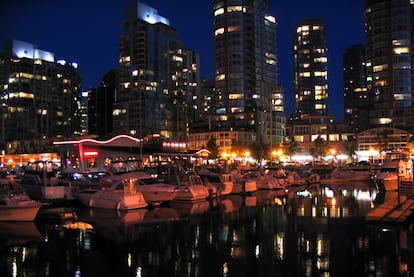Canada bans foreigners from buying property to contain rising home prices
Non-Canadians who violate the ban can be fined up to $10,000 and may be required to sell the real estate they purchased


A new Canadian law that bans foreigners from buying residential properties as investments came into effect on January 1. It provides exceptions for home purchases by permanent residents who are not citizens, as well as international students, foreign workers and refugees. The measure, which will be in place for two years, is aimed at stabilizing Canada’s skyrocketing home prices.
Non-Canadians who violate the ban can be fined up to $10,000 and may be required to sell the property they purchased. Any individual or company involved with the home purchase may be fined the same amount.
Canadian Prime Minister Justin Trudeau promised to introduce the law while campaigning for re-election in 2021. It was passed by Parliament on June 23. Canada is now one of a few countries that bans foreigners from buying residential property as investments. New Zealand introduced a similar measure in 2018, while in Finland, foreigners need permission to buy real estate in the country.
“Homes should not be commodities,” said Ahmen Hussen, minister of housing, in a statement on December 21. “Homes are meant to be lived in, a place where families can lay down roots, create memories and build a life together. Through this legislation, we’re taking action to ensure that housing is owned by Canadians, for the benefit of everyone who lives in this country.”
The Canadian government has introduced other measures to curb rising home prices, such as tax incentives for first-time homebuyers, investment for the construction of new homes and monthly subsidies for people who are unable to find affordable rent. An anti-flipping tax also came into effect on January 1. Under the law, anyone who sells a property which they owned for less than 12 months – a process known as flipping – will be taxed on the profits made from the deal.
“Our economy is built by people, and people need homes in which to live,” said Finance Minister Chrystia Freeland, when she presented the initiative in April. “Our problem is simply this: Canada does not have enough homes. We need more of them, fast.”
The average cost of a home in Canada rose 44% between December 2019 and February 2022, with Vancouver and Toronto hardest hit by the spike.
But not everyone is convinced the new law will contain prices. Some critics say the housing crisis is due to national issues, and cannot be solved by banning foreigners from buying real estate as investment. A report published by Baker Insights Group shows that non-Canadian residents purchased just 1% of all the properties sold in 2020. Instead of a ban, the New Democratic Party, Trudeau’s government partner, argued for a 20% tax on the sale of homes to individuals who are not Canadian citizens or permanent residents.
Sign up for our weekly newsletter to get more English-language news coverage from EL PAÍS USA Edition
Tu suscripción se está usando en otro dispositivo
¿Quieres añadir otro usuario a tu suscripción?
Si continúas leyendo en este dispositivo, no se podrá leer en el otro.
FlechaTu suscripción se está usando en otro dispositivo y solo puedes acceder a EL PAÍS desde un dispositivo a la vez.
Si quieres compartir tu cuenta, cambia tu suscripción a la modalidad Premium, así podrás añadir otro usuario. Cada uno accederá con su propia cuenta de email, lo que os permitirá personalizar vuestra experiencia en EL PAÍS.
¿Tienes una suscripción de empresa? Accede aquí para contratar más cuentas.
En el caso de no saber quién está usando tu cuenta, te recomendamos cambiar tu contraseña aquí.
Si decides continuar compartiendo tu cuenta, este mensaje se mostrará en tu dispositivo y en el de la otra persona que está usando tu cuenta de forma indefinida, afectando a tu experiencia de lectura. Puedes consultar aquí los términos y condiciones de la suscripción digital.








































